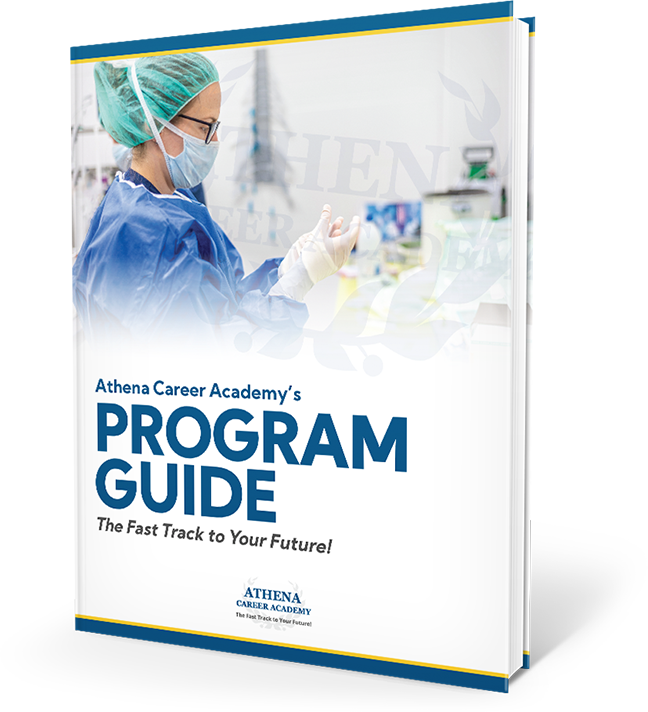Innovations in Early Childhood Education
Posted On Jan 24, 2024
Early childhood education is always evolving. Early childhood educators understand the importance of keeping up with trends and innovations that will improve the educational experience for their students. Early childhood educators understand the importance of a positive and nurturing start, as the foundation that is being built during the formative years can impact the path these students will be on for the rest of their academic years. Continuing education and giving attention to new innovations and research can help early childhood educators be effective, creative teachers, as well as developing a culture of a lifelong love of learning.

Focus on Relationship Building with Students and Families
One of the most important trends in early childhood education is the focus on the child’s environment, including the families and communities of the students, rather than looking only at the child in a vacuum. Early childhood educators have realized the importance of developing and nurturing strong relationships between the parents, the community, and themselves as educators. These connections provide a vital support system for students and their families. When relationships between early childhood educators and the families are fostered, the connection can be a support system, offering insights into the child’s growth and guidance for everyone who works with the child. When the relationships are built well, there will be a consistent nurturing environment for the young students, which is the optimal environment for early academic development. Children thrive when their parents and teachers are working together, understanding the diverse perspectives that are shaping the students' lives.
Understanding Diverse Needs and Closing the Achievement Gap
Not every child will have the same early childhood education experience. Diverse needs, whether they be physical, academic, cultural, or economic, all contribute to the early childhood experience. Early childhood educators have an increased focus on not only recognizing these differences, but in addressing them with depth and sensitivity. Early childhood educators are both recognizing strengths and identifying where additional support may be needed to close the achievement gap. The differences in academic achievement between different social and economic groups has been addressed for many years in different stages of education, but recently more attention has been given to students early in their educational journey. For teachers working in early childhood education, more emphasis is given to assessment. Not only will assessments help identify academic needs early in a child’s life, but consistent and formative assessments can help guide instruction and demonstrate whether or not the instruction will need to be adjusted due to the diverse needs of the learner. Early childhood assessments take different forms than those later in academic settings, with much of the data being pulled from observations rather than standardized testing. When instruction is adjusted based on this data, it may involve altering the curriculum to be more culturally appropriate for all children.
Balancing New Technology with a Return to Nature
Other countries have embraced the concept of “forest schools”, and that trend has started to take hold here as well. Incorporating a natural space is about more than just a surface level “nature appreciation”, and more about authentic learning and developing fine and gross motor skills while building a connection to nature. In some areas this may be easier to implement than others, but even schools in urban areas where access to natural spaces is limited, early childhood students can still benefit from working with natural materials, such as developing motor skills while working in a sand or water table, dedicating time to outdoor play, or bringing natural elements into the classroom.
While the return to nature has many proven benefits, there is no question that early childhood educators should not disregard the importance of technology. Students do need to learn how to utilize technology in a healthy way. Interacting with devices does not need to be passive. Early childhood educators should put the emphasis on interactive technology over passive technology, which involves playing games, developing fine motor skills, and being creative. Preschool teachers can find a balance in their classrooms and use their expertise to help parents determine the right balance for home.
Evolution of Literacy Instruction
There have been many trends in literacy instruction, and there has been a return to an increased focus on explicit and systematic phonics instruction for the early childhood years. Children who are learning to read and write with a phonics-based program, rather than a whole language, sight word based approach, are developing an understanding of how language works. Many phonics and phonemic awareness programs have been very successful in preschool and kindergarten classrooms, allowing students to read independently. Early childhood teachers need to have a strong background in how to teach literacy, not simply in how to follow a curriculum, particularly if that curriculum is still focusing on debunked methods. Phonics instruction has been proven to be the best method for teaching early childhood students to read. All educators working in early childhood education should have the right training to teach an explicit, systematic phonics based literacy program.
Early childhood education is an evolving field, and there is an increasing awareness that the early years are the most critical in future academic success. For the best chance at success for all students, early childhood educators can focus on continuous education in new developments and techniques that are being proven to work well for young students. While not every trend will last, educators who are dedicated to continuous improvement will always give the best possible education to their students. If you’ve been thinking about becoming a teacher, now is a great time to pursue a career in early childhood education. Contact Athena Career Academy to learn more about our two year ECE degree program.
Recent Posts
- How Accessibility to Faculty Enhances ECE Degree Program
- Early Childhood Education Courses Lead to Great Teaching Careers
- Insights for Effective Preschool Teaching
- Online vs. In-Person Medical Assistant Training: Which Is Right for You?
- Preschool Teachers Provide Hands-On Learning for Future Innovators
Categories
- Flexible Class Schedule
- Early Childhood Education
- Clinical Medical Assistant
- Medical Assistant
- Accredited
- Medical Assistant Program Toledo, OH.
- MA Program
- ECE
- preschool teacher
- CMA
- Administrative Medical Assistant
- Practical Nursing
- Nursing School
- Nursing
- Early Childhood Education Degree
- LPN to RN
- Certified Medical Assistant
- Early Childhood Educator
- Become a Teacher
- Nursing Career
- RN
- Childcare Teacher
- Nursing School Toledo
- Practical Nurses
- Childcare Director
- Nursing Education
- Registered Nurse
- LPN
- Toledo Ohio Nursing School
- Teaching Degree
- Become a Nurse in 12 Months
- Nursing Career Opportunities
- Nursing School Preparation
- Practical Nursing Jobs
- Medical Coding and Billing
- DayCare Teacher
- Nursing Salaries
- Nursing School Costs
- PN to RN
- Career Training
- Nursing School Tuition
- Nursing School Financial Aid
- Phlebotomist Technician
- Practical Nurse Salaries
- EKG Technician
- nurse burnout
- #nursesunite
- Insider
- Phlebotomy Technician Salary
- Uncategorized
- resume
Contact us
For News, Resources, and Conversations:
Get your FREE 2022 Athena Career Academy Program Guide
The best way to get to know Athena Career Academy is to see what we offer. Download our program guide to learn more. Take the fast track to your future today!
An exciting career can be yours in just one year!
Discover how Athena Career Academy can help you reach your medical career goals fast.
Accrediting Agencies
Athena Career Academy is accredited by the Commission of the Council on Occupational Education. The school is registered with the Ohio Board of Career Colleges and Schools; State of Ohio – School Registration Number – 10-09-1943T and operates under the authority of the Ohio Board of Nursing. Please contact the Student Operations Manager for more information.



